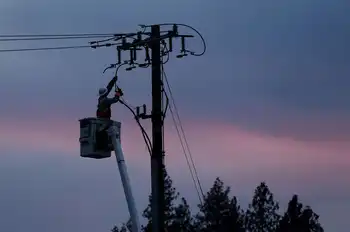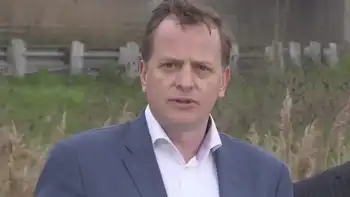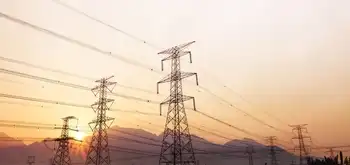Ontario Minister Vows Quick Hydro Sale
TORONTO -- - The Minister of Energy in Ontario wants Crown-owned utility Ontario Power Generation Inc. to pursue an aggressive asset sale strategy because it is urgent the province promote competition in its $10-billion electricity market.
"I want to see an aggressive plan to decontrol," John Baird said yesterday at a Toronto Board of Trade breakfast. "We need a more specific timetable that sends out a clear message to investors and consumers alike. We all know the destination -- it's time to map out the route that will get us there."
OPG, which controls about 75 per cent of the power production market, is required under the rules governing Ontario's restructured electricity sector to reduce its market share to 35 per cent by May, 2012.
However, Baird, appointed Energy Minister two months ago, told the audience that target is "too vague."
"You have my word that I will hold OPG's feet to the fire to ensure that we demonstrate our commitment to decontrol," he told the Bay Street crowd. "It's absolutely essential in a competitive market, because we can't afford to have one player dominate. You know that and I know that, too." According to advocates of electricity restructuring, competition among producers drives down the price of power.
But critics and industry observers say Ontario has failed to generate competition in its electricity market because the province continues to own the two big players, OPG and Hydro One Inc.; the government, under Premier Ernie Eves, has showed a penchant to intervene, such as cancelling the sale of Hydro One and ordering a review of the regulator, the Ontario Energy Board; and uncertainty over when, and if, the Pickering nuclear operation resumes operation.
Baird acknowledged that Pickering, which was supposed to be up and running as early as 2001, is a problem.
"It is behind schedule and costs have escalated -- but it is commercially viable and environmentally friendly," he said. "Nevertheless, I am not happy with the progress to date. As a shareholder, I am asking the tough questions and demanding answers. I am also aware that investors need more than a timetable -- they need confidence that the project is being well managed." He added he had "full confidence" in OPG chief executive, Ron Osborne, and the rest of the utility's management team.
Pickering, which can produce enough power for two million households if all units are operating, has faced myriad delays and is likely to miss its latest target date of late this year or early next.
Industry sources say the target date for the first Pickering unit to come onboard has been pushed back to the second quarter of 2003. Mr. Baird said OPG will address Pickering's timetable when the utility releases its third-quarter earnings, due in the next few days.
A recent report from Ontario's Independent Electricity Market Operator suggested the province could face a "serious shortage" of power next summer unless units at the Pickering A and the Bruce nuclear facility return to service. Failure to get those assets on stream could lead to rolling blackouts and sky-high power rates in the province.
In the Ontario Legislature yesterday, Sean Conway, the Opposition Liberal energy critic, said he has also heard rumours of a pending delay at Pickering.
"What I am hearing is deeply troubling and is going to send these already high electricity bills into the stratosphere with enormous political pain for every single one of us in this room," Conway said. "If that is true ... it will have dramatic and negative implications for all electricity consumers in Ontario."
Opinion on Mr. Baird's speech was mixed.
"It was very well received," said one Bay Street insider who did not want to be named. "The speech was extremely thoughtful. He gave us a signal to be cranked up."
However, Tom Adams, executive director of industry watchdog Energy Probe, was less enthusiastic. "The government has no credibility on its promises," he said. "I don't buy it anymore. We've been sold a bill of goods so many times that warm statements are not good enough."
Related News

PG&E restoring power after intentional shut-offs affect 20,500 customers
SAN FRANCISCO - PG&E power restoration continues across Butte and Yuba counties after PSPS shut-offs from high winds and dry weather, with crews patrolling overhead lines, repairing damage, and reopening community resource centers near Lake Berryessa.
Key Points
PG&E power restoration safely re-energizes lines after PSPS, using inspections and repairs to restore service.
✅ Crews patrolled 800 miles of overhead lines for hazards
✅ Repairs followed wind damage; gradual re-energization
✅ Resource centers offered water, outlets, air conditioning
Pacific Gas and Electric Co. field crews have begun restoring power to approximately 20,500 customers in Butte and Yuba counties after…




